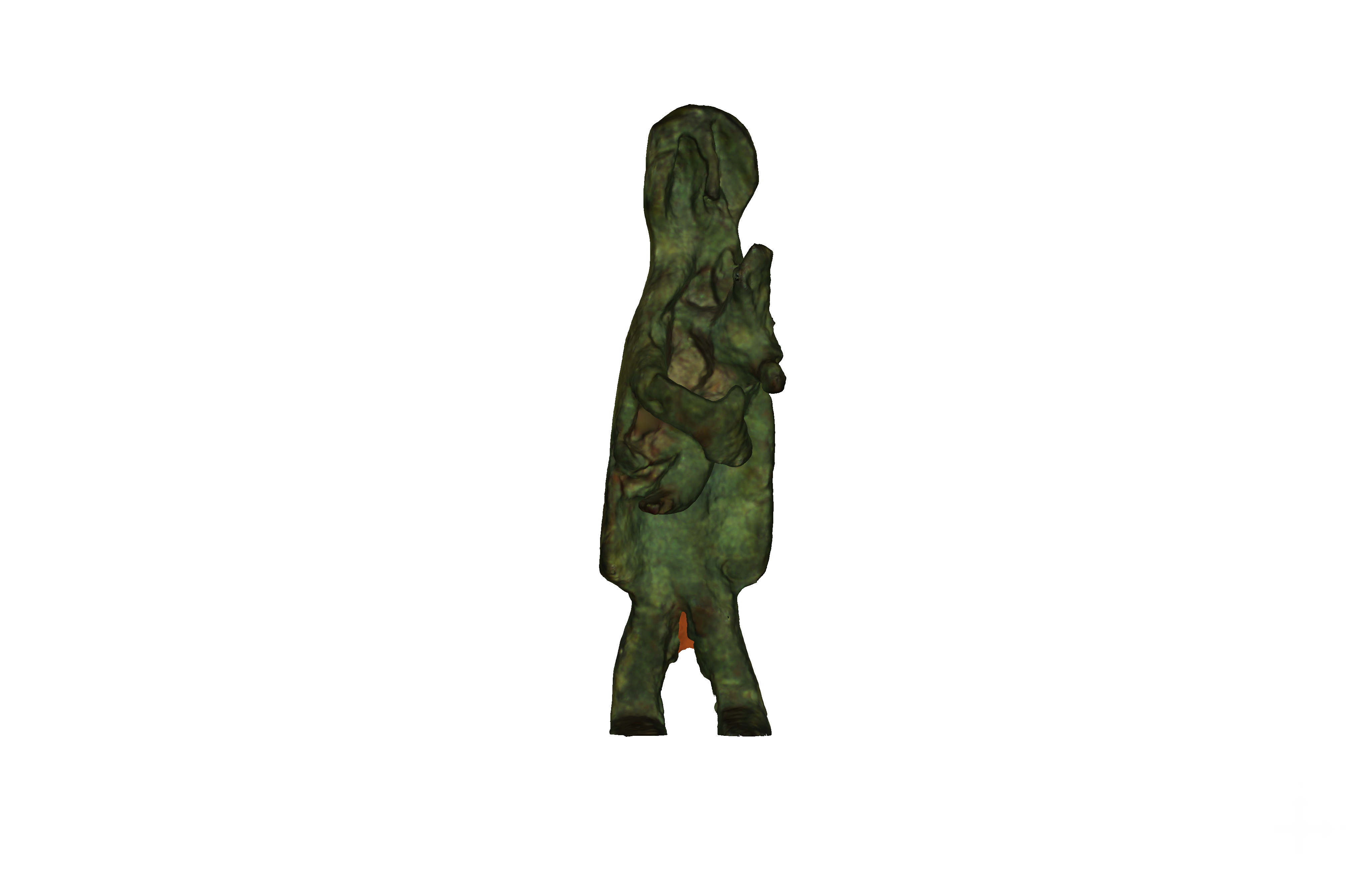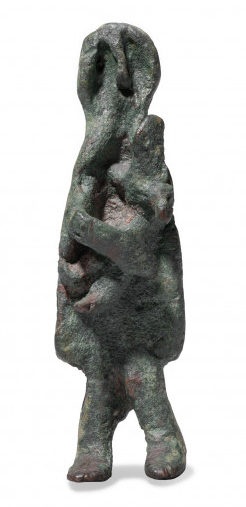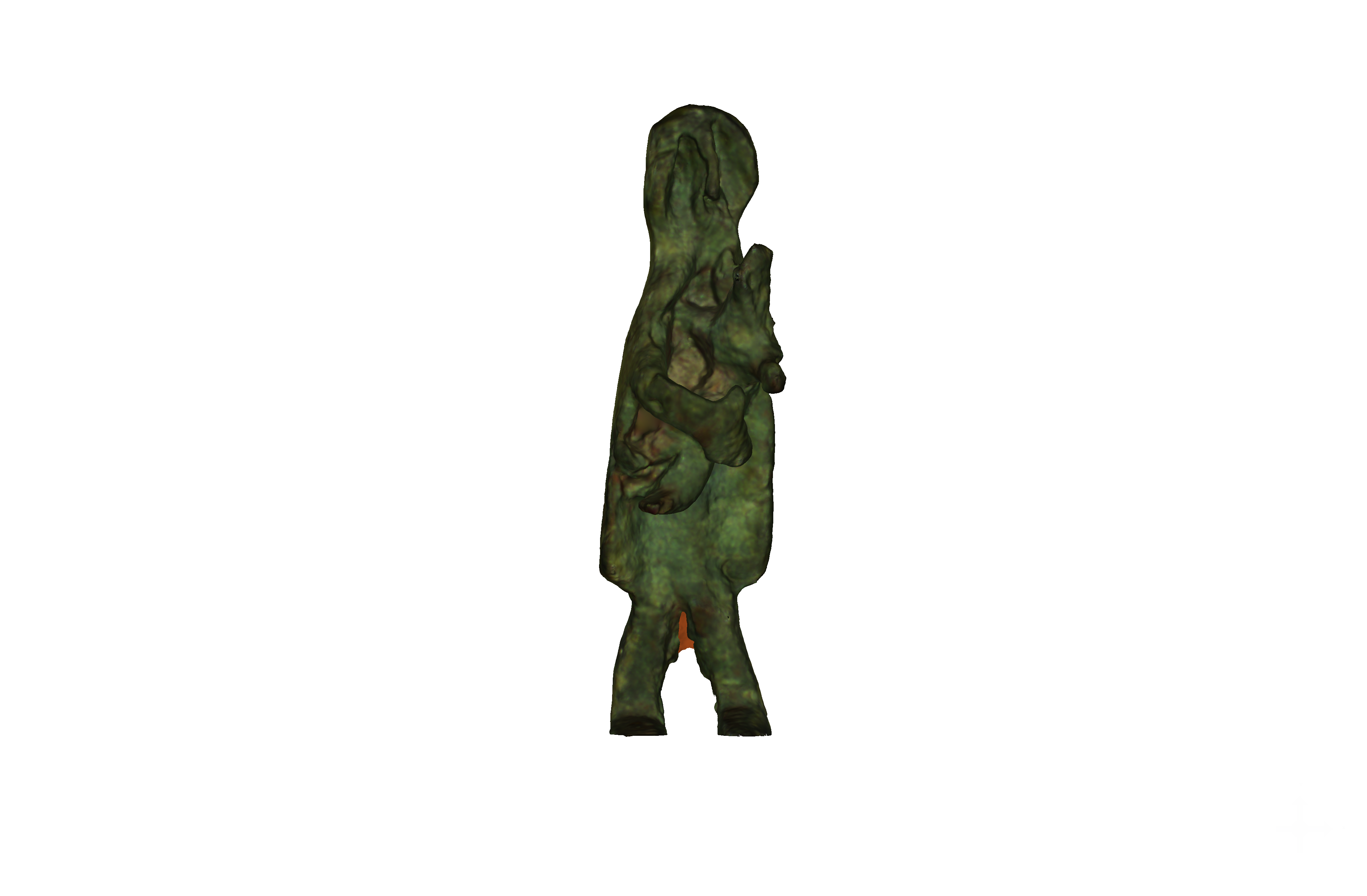Description
Click on the image to go full screen
The statuette, made of bronze using the solid cast technique, was found in Padua in Via 'delle Seriole' (now Via Euganea Feriole) in 1907 during work in an agricultural field, and belonged to the Bottacin collection. It represents a female figure covered by a hooded cloak, in a frontal position with her legs apart, holding a child in her arms. Somatic features are practically absent: the woman's face is symbolised only by her pointed nose, and the child is also extremely stylised. The mother's arms are wrapped around her child, in a spontaneous gesture of tenderness and protection, but also to show him to the community.
The choice of the subject represents a unicum in the venetic panorama and is probably linked to a specific cult of health, fertility and maternity. In fact, this figurative model is particularly rare throughout the ancient world, and it is only on the basis of comparisons with other votive areas with similar examples that a proximity to the Ravenna statuettes and a date between the 5th and 4th centuries BC could be reconstructed.


